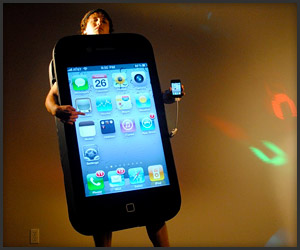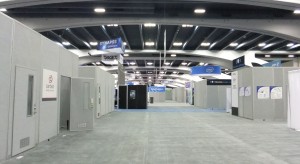This has been ruminating inside my head for a while, so I thought I’d post about it. That’s what this is for, right?
I am not the first to write about this, nor will I be the last. And it isn’t just tech, but fandom at large. However, this is prevalent inside of the tech industry, both on the consumer and business level.
What we are talking about here is…why? Why do we choose sides? Why do we align ourselves with companies and their products? What are the triggers?
It’s obvious that companies want to produce fans. With fans, you can withstand bad product cycles, because fans forgive. With fans, you can build hype around releases, because fans will buy and will influence their circles to buy as well. But why do we take part in this? Are we really doing ourselves any favors by being fans?
Case in point: The Apple iPhone 4s. What about this phone makes it worth the price of  admission? Especially when you consider the technology you likely already had, which is the iPhone 4. It did not have what everyone really wanted in their new iPhone which was support for faster data (there is no 4G yet. It’s marketing. 4G will be MUCH faster than what we have now, but i’ll take 4G “lite” over 3G any day of the week, and twice on Sunday). It did have a dual core processor that no one cares about, and a slightly better crappy camera (there are no good mobile phone cameras. the sensors are too small. SIZE MATTERS). But I saw all the people line up to buy it, as did you. I saw and read the hype, as did you. The EXPECTATION was that this would finally catch up, speed-wise, to other phones on the market. The community expressed disappointment, surely, but they still bought the stupid thing. Because they are fans. And Apple KNEW they would buy it. And every other gadget/tech company in the consumer space is desperately trying to figure out how to build the same kind of fandom.
admission? Especially when you consider the technology you likely already had, which is the iPhone 4. It did not have what everyone really wanted in their new iPhone which was support for faster data (there is no 4G yet. It’s marketing. 4G will be MUCH faster than what we have now, but i’ll take 4G “lite” over 3G any day of the week, and twice on Sunday). It did have a dual core processor that no one cares about, and a slightly better crappy camera (there are no good mobile phone cameras. the sensors are too small. SIZE MATTERS). But I saw all the people line up to buy it, as did you. I saw and read the hype, as did you. The EXPECTATION was that this would finally catch up, speed-wise, to other phones on the market. The community expressed disappointment, surely, but they still bought the stupid thing. Because they are fans. And Apple KNEW they would buy it. And every other gadget/tech company in the consumer space is desperately trying to figure out how to build the same kind of fandom.
Look, I’m a fan of things too, so I’m not the dispassionate observer that you think I am making myself out to be. I’m just trying to figure this thing out myself.
Apple isn’t the only company with fans. Some companies have fans of only one product (Microsoft XBox) and some companies have fans only among IT sectors (Cisco).
So, back to the “why.” I think there are two main driving factors that build product/company fandom, and I think they work in tandem (see what I did there?). First is the positive personal experience. Every fan, at the very beginning, took a flyer on the product. They hadn’t experienced it before and they felt that they needed to. So, there is an initial risk, a very personal one. This is an exposure of vulnerability in order to fulfill a desire (that we often classify as need). This is non-trivial because it almost always involves more than just financial outlay. With phones, there are usually contractual obligations that tie us in for an extended time. Another risk is that, by choosing one, we automatically eliminate the alternatives. If that risk gets rewarded positively, then it triggers an association. We associate the positive personal experience directly to the company/product that provided the tech we chose. And companies LOVE it when this happens.
The second factor is community influence. This is made up of the fan’s relationships with other people (or advertising) that influence their decision. More on this later.
David:
The May 14th issue of the New Yorker profiles Clayton Christensen, author of the 1997 book The Innovator’s Dilemma. Christensen sought to discover why large successful businesses could go from successful to bankrupt so quickly. I won’t retell the story here; please read the article. But there are clear parallels to what’s happened with the iPhone.
The revolution began with the iPod and, more subtly, with iTunes. The iPhone was just a big iPod with a phone and camera slapped on. It wasn’t very good phone service, and it was a lousy camera—but the point is, it was good enough, so people used it anyway. In particular, young people used it anyway, and with fandom it’s young people that matter. Low-end digital cameras have been in trouble for some time because of camera phones: sure real cameras are better, but it doesn’t matter because camera phones are good enough for what most people want (this is one of Christensen’s main points).
I’m one of those who went from a iPhone 3GS to an iPhone 4G. Why? Because my wife and I wanted to switch from AT&T to Verizon. Arlene is a realtor, and she spends all day on the phone; she needed better phone service. I’ve always been a Macintosh enthusiast (I’ve owned one since the very beginning, in 1984) but I’ve never stood in line for anything when it first came out. Not sure whether that makes me a fan.




